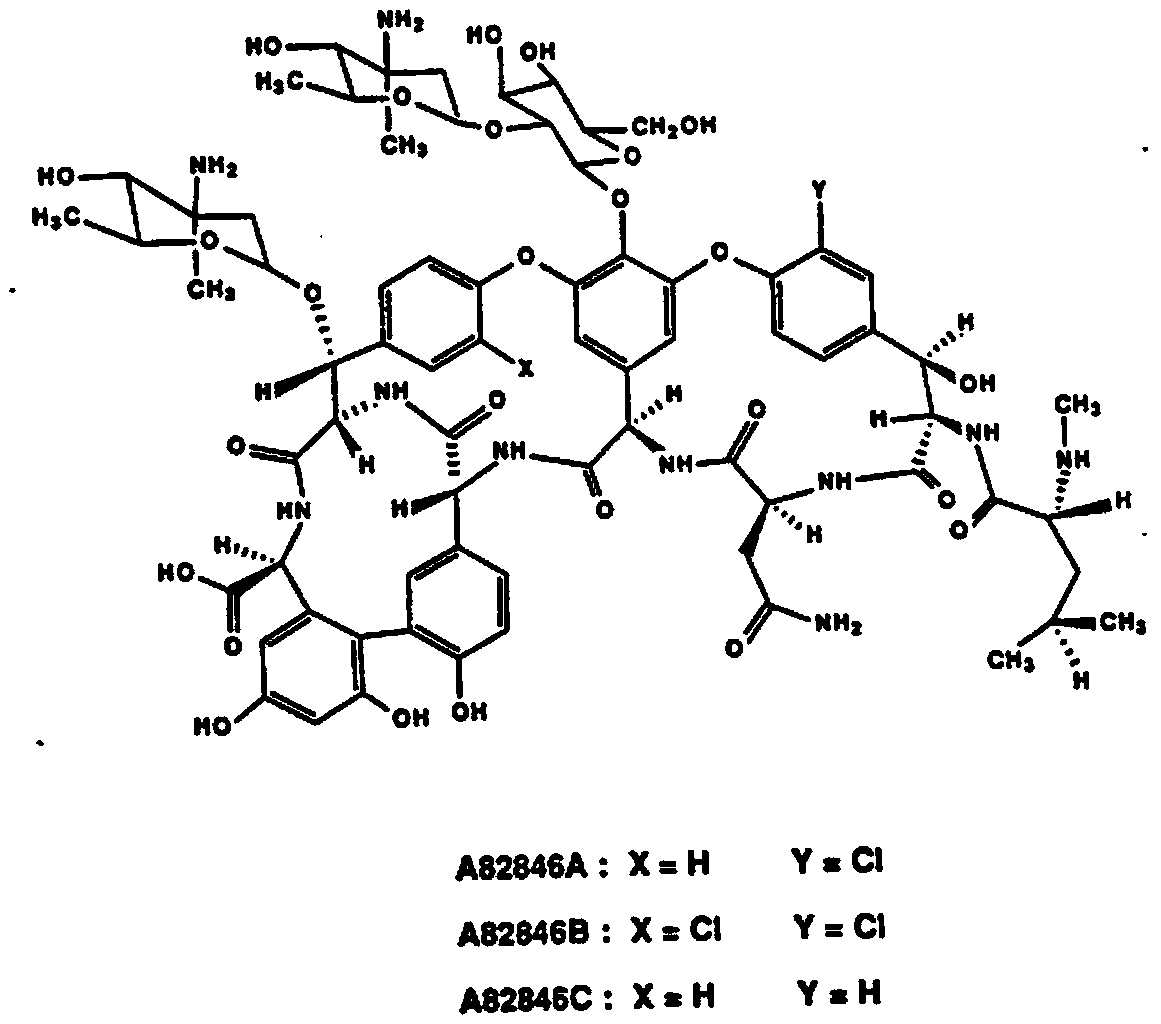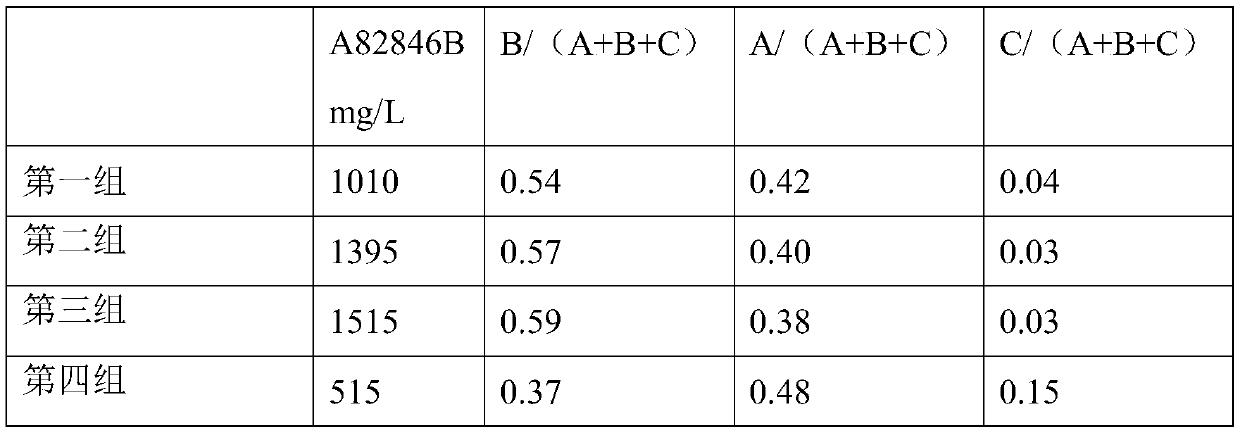Method for preparing oritavancin intermediate in fermenting manner
A technology for oritavancin and intermediates, which is applied in the field of microbial fermentation production, can solve the problems of affecting extraction yield, low fermentation unit and component ratio, and increased production cost.
- Summary
- Abstract
- Description
- Claims
- Application Information
AI Technical Summary
Problems solved by technology
Method used
Image
Examples
Embodiment 1
[0030] The preparation of embodiment 1 seed liquid
[0031] Seed medium: maltodextrin 20g / L, glucose 10g / L, soybean powder 15g / L, yeast extract 3g / L, calcium carbonate 1g / L, pH7.0.
[0032] Pack 150ml of seed culture medium into a 750ml Erlenmeyer bottle, and sterilize at 120°C for 30 minutes before use.
[0033] Inoculate the A82846B production strain Nocardia orientalis NRRL 18098 stored at low temperature into the prepared seed bottle, and shake the bottle for 40-50 hours at a temperature of 30°C and a rotation speed of 250 rpm to obtain mature shake bottle seeds.
Embodiment 2
[0035] Fermentation medium: maltodextrin 40g / L, molasses 20g / L, soybean powder 20g / L, yeast powder 10g / L, calcium carbonate 3g / L, calcium chloride 10g / L, pH7.0.
[0036] Pack 35L of fermentation medium in a 50L fermentation tank, and sterilize at 120°C for 30 minutes before use.
[0037] Inoculate 3.5L of mature shake flask seeds into a fermenter with 35L of feed liquid, culture conditions: temperature 30°C, ventilation volume 1VVM, tank pressure 0.05Mpa, initial speed 200rpm, control the dissolved oxygen by adjusting the speed to more than 30%. Cultivate for 5 days to obtain a fermented liquid, and the fermentation unit is 515 mg / L.
Embodiment 3
[0039] The fermented liquid obtained in Example 2 was adjusted to pH=10.3 with NaOH solution, stirred for 2 hours, and plate-and-frame press-filtered to obtain 35 L of press-filtered liquid, which was adjusted to pH=9.2, and then introduced into LX18 adsorption resin. Purify 9L of resin with water with a pH of 8, then use 8L of 1.0% acetic acid aqueous solution for desorption, and mix components with a concentration greater than 500mg / L to form a primary desorption mixture, then perform nanofiltration on the desorption mixture, and concentrate to The unit is 35000mg / L.
[0040] The concentrated solution is introduced into the C18 column that has been balanced, and the eluent (5% acetonitrile: 0.5% NH 4 h 2 PO 4 =3:97 (v / v)) for elution, and the components with a purity of more than 90% were collected for extracting the product. A82846B purity below 90% is impurity waste liquid.
[0041] Collect the impurity waste liquid, concentrate it by nanofiltration, and concentrate unti...
PUM
 Login to View More
Login to View More Abstract
Description
Claims
Application Information
 Login to View More
Login to View More - R&D
- Intellectual Property
- Life Sciences
- Materials
- Tech Scout
- Unparalleled Data Quality
- Higher Quality Content
- 60% Fewer Hallucinations
Browse by: Latest US Patents, China's latest patents, Technical Efficacy Thesaurus, Application Domain, Technology Topic, Popular Technical Reports.
© 2025 PatSnap. All rights reserved.Legal|Privacy policy|Modern Slavery Act Transparency Statement|Sitemap|About US| Contact US: help@patsnap.com


